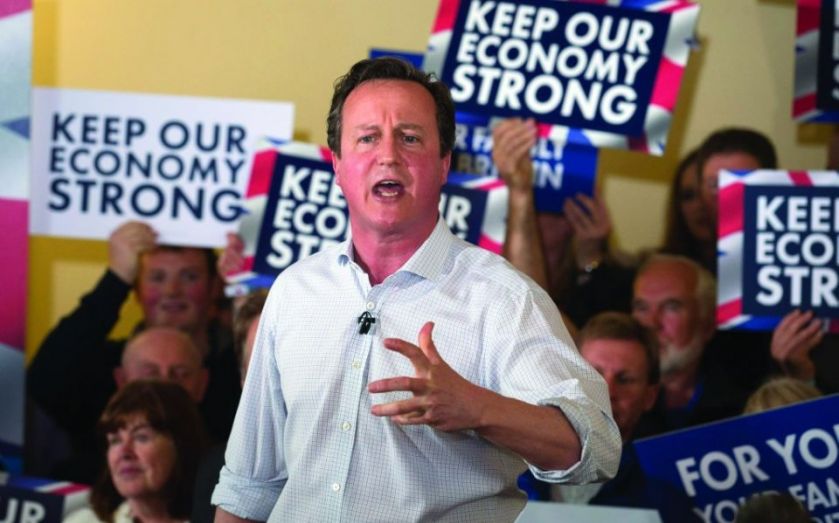How not to trade the UK’s General Elections – CNBC Comment

One month after each of the last six UK General Elections, the average return of the FTSE 100 has been 1.85 per cent. Meanwhile, sterling has fallen by an average of 3.06 per cent against the US dollar. So the lesson is simple: buy the FTSE and sell the pound, right?
Clearly – not so.
Just as with last year’s volatility in UK financial markets sparked by the Scottish independence vote, investors are concerned about what the closest General Election in decades will mean for markets.
There are indeed a few reasons to worry. The economy is fragile, and there is fear that a change of leadership could derail the nascent recovery. There is the threat of a “Brexit” from the EU – and all the uncertainty that would entail – if the Conservatives are returned to power.
And the main problem: it is unlikely we’ll get a clear, decisive outcome, and this could lead to gridlock and inaction in the next Parliament.
These are all reasonable concerns, but they will not have a major, lasting impact on the outlook for British financial markets.
Sterling has weakened against the dollar over most timeframes within the last year, and some reports link that decline to the election. But for me it has far more to do with the fact that inflation remained at 0 per cent in March for the second consecutive month. This has pushed interest rate rise expectations into 2016 for the UK, while they remain in 2015 for the US. Furthermore, on a trade-weighted basis, sterling has not even been weak – the UK’s main trading partners, who use the euro, have enjoyed a far more pronounced decline against the US dollar.
The Bank of England’s latest figures show that foreign investors have reduced their holdings of UK government bonds by £14bn since the start of the year. But headlines such as “Election jitters prompt gilts exodus” in the Financial Times are misleading. The yield on the 10-year gilt has been falling in recent months – it was close to 2 per cent at the start of March, and it now sits below 1.7 per cent. Year to date, the yield has also fallen.
That means that, overall, there has been buying of the 10-year bond, not selling. Why? Because, thanks to the inflation level, various Bank policy-makers have suggested that an interest rate cut is almost as likely as a rate rise. Last week, in the very short term, yields did move up again slightly – but that was because of a relatively hawkish set of Bank of England minutes, not anything election-related.
As for the equity market, it is no secret that the FTSE 100 is an international and commodity-biased index. But suppose you could trade UK Plc – should you be buying it on any election dips? Unless you’re a very short-term trader, I would say no. While I am impressed by what the coalition has managed to achieve with the economy over the last five years, it’s all relative. Things are still incredibly fragile. But more importantly, unlike continental Europe, we face tightening not loosening of monetary policy and, as we all know, central bank action has been the main factor driving equity markets in recent years.
What about the long term? We have a huge national debt to pay off. Even if politicians on all sides claim that they can “balance the books” – my number one annoying phrase of this year’s election campaign – in the next Parliament, we will be paying off our debt for decades. Most worryingly, when it comes to demographics, we are only slightly better off than Japan. And like all of the western world, we have already blown our monetary policy flexibility to deal with an ageing population.
Bottom line, will there be arbitrage opportunities for the short-term trader around the election? Most certainly – and I would expect the trade would be to buy the likely over-reaction in fear. But the next government still has a monumental task to fix the economy. Does the election make a difference to that? At the margins perhaps, but not enough to change the long-term outlook overnight to anything other than very challenging.
[custom id=”1″]